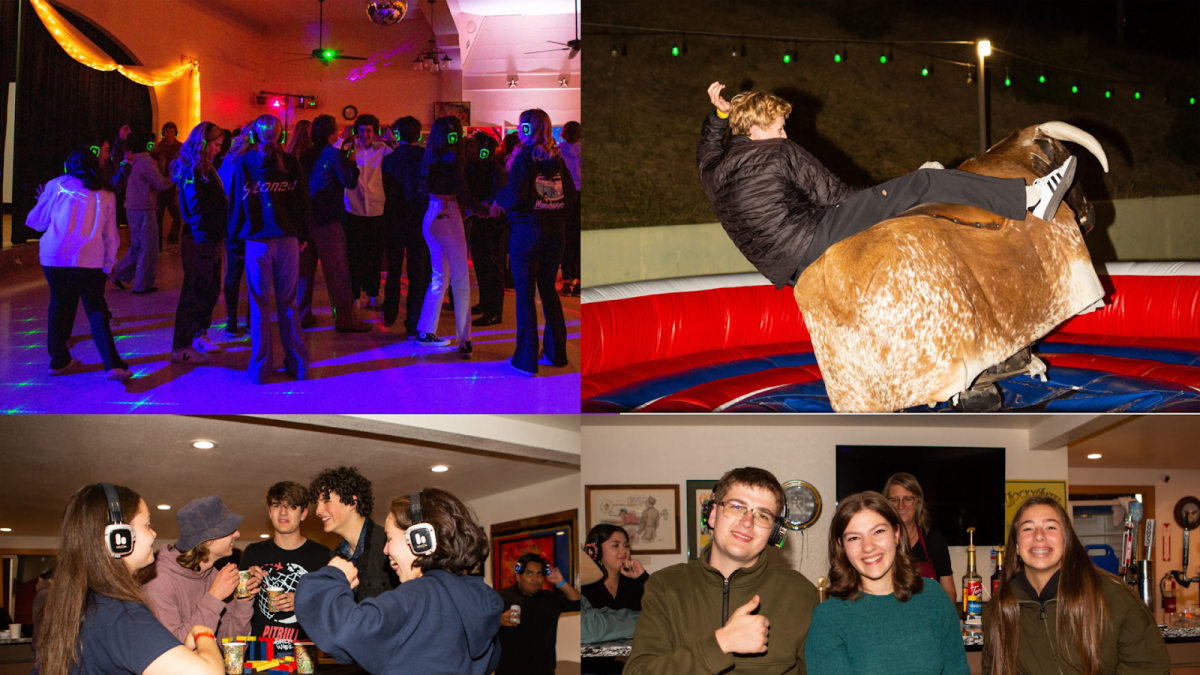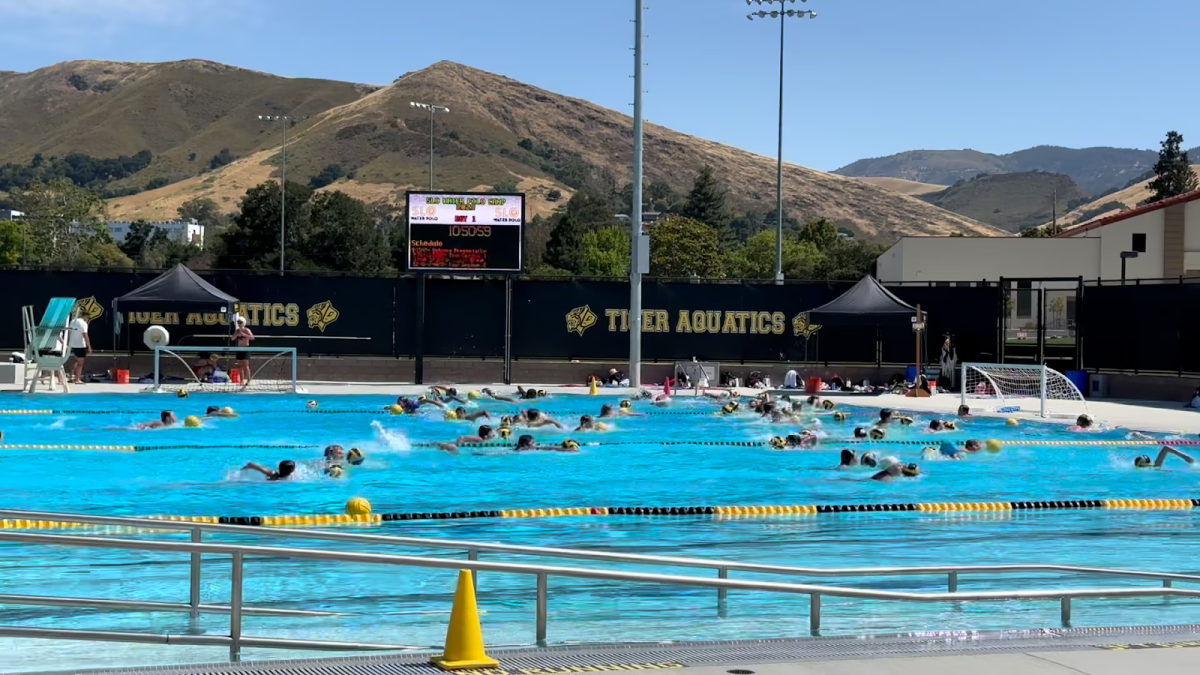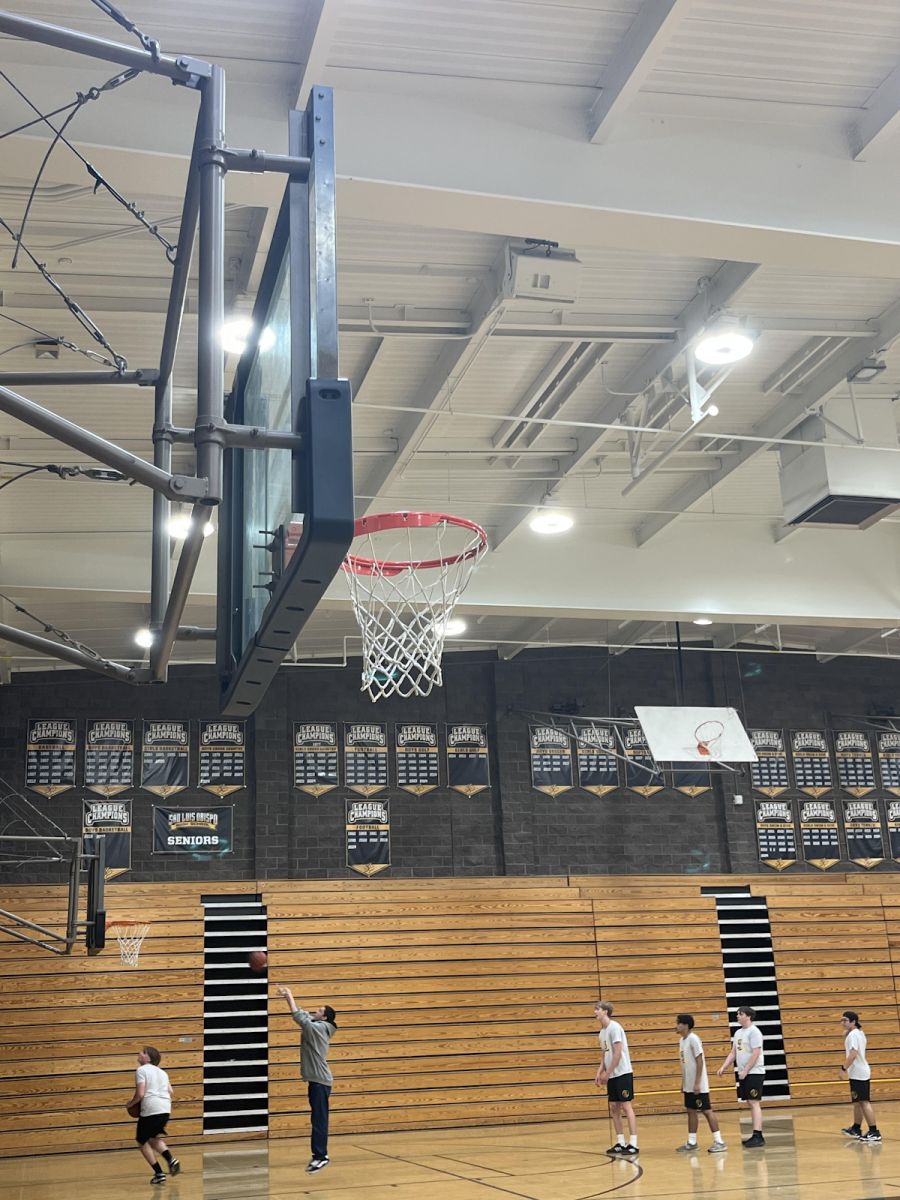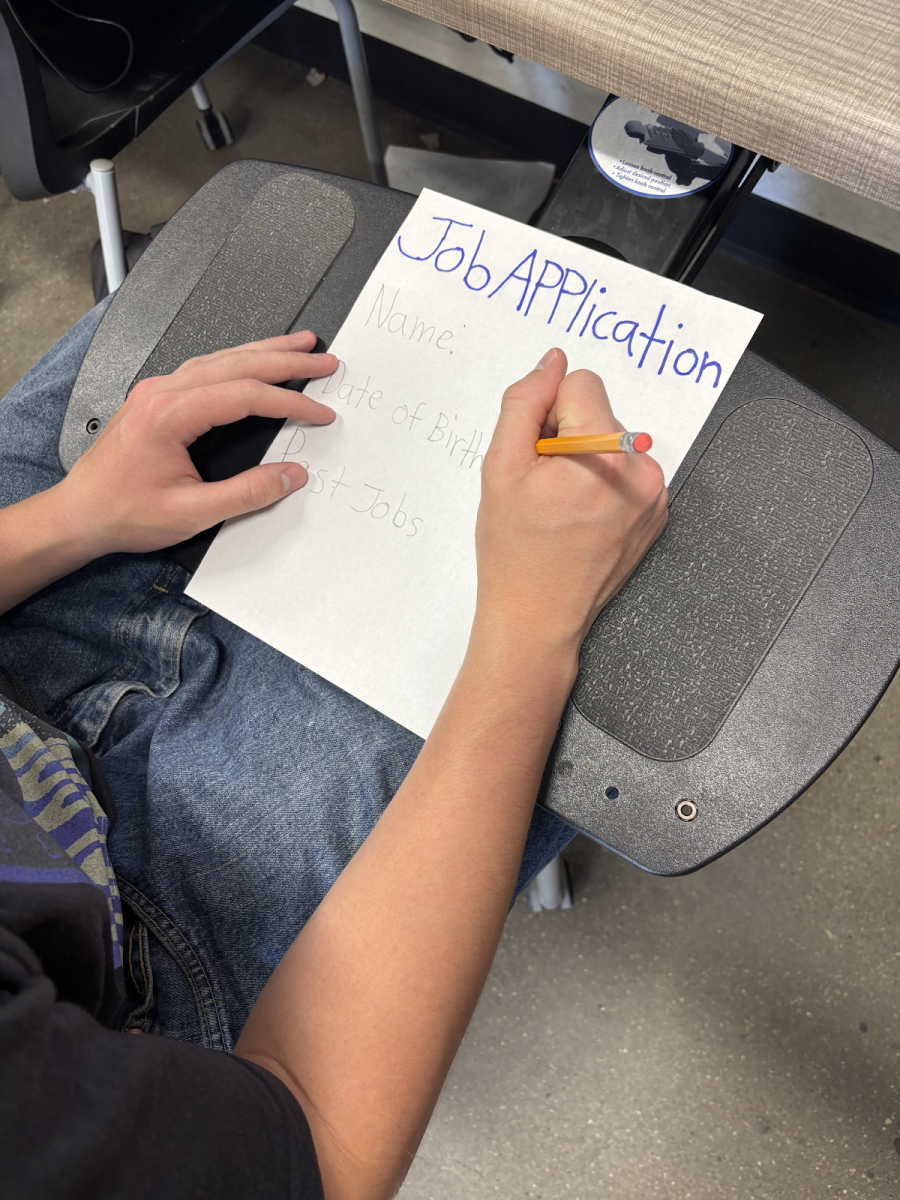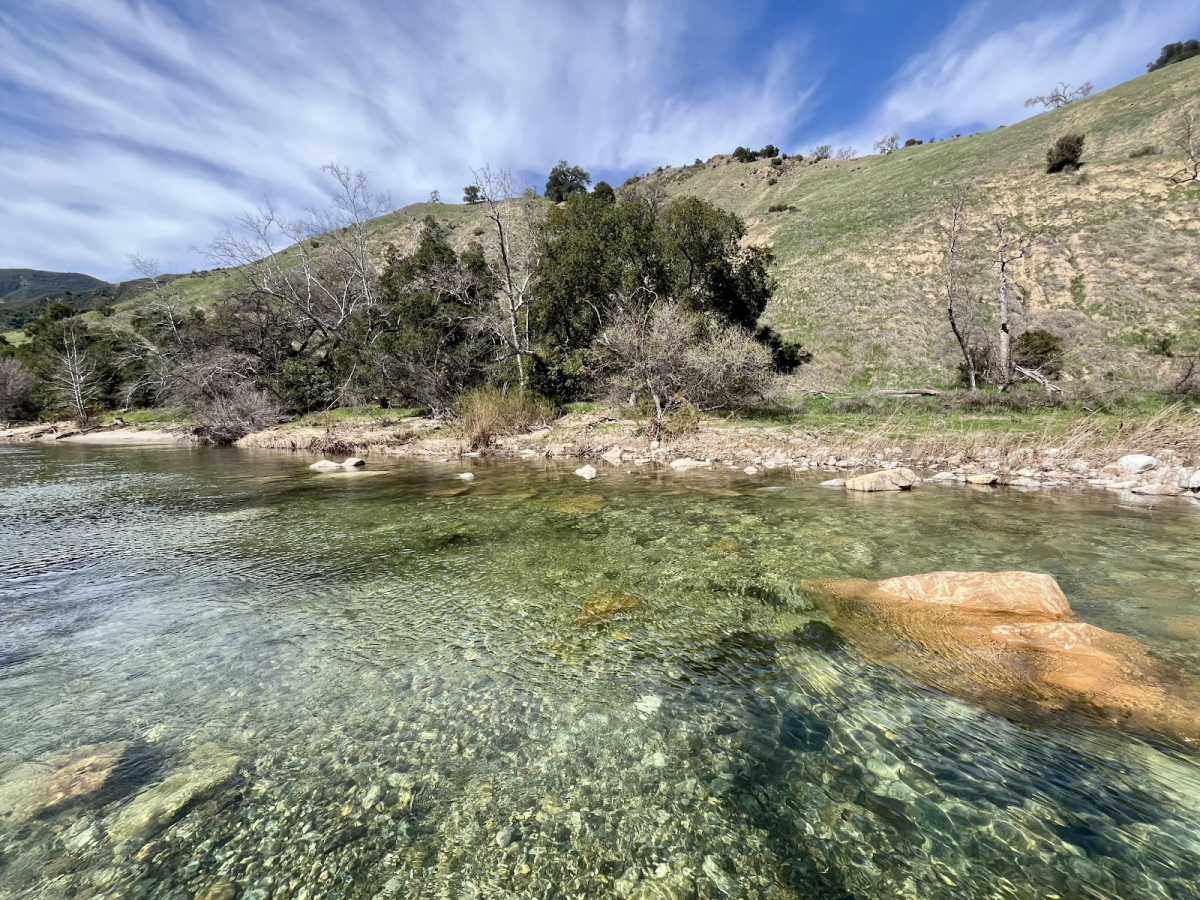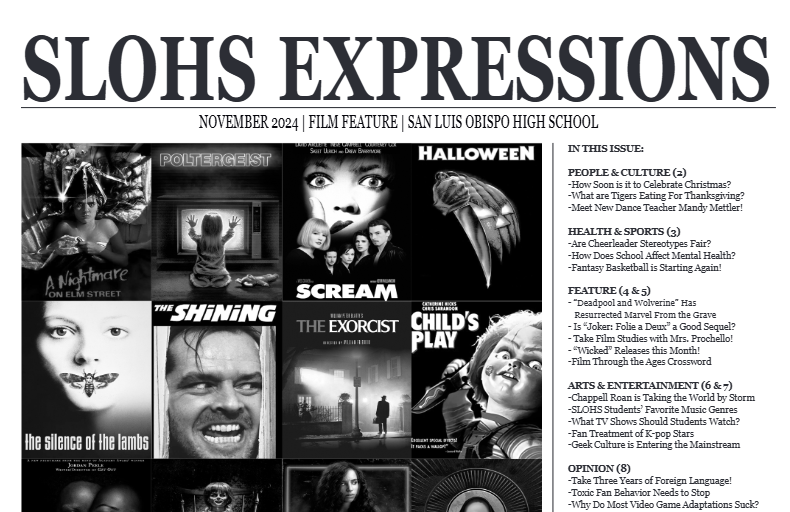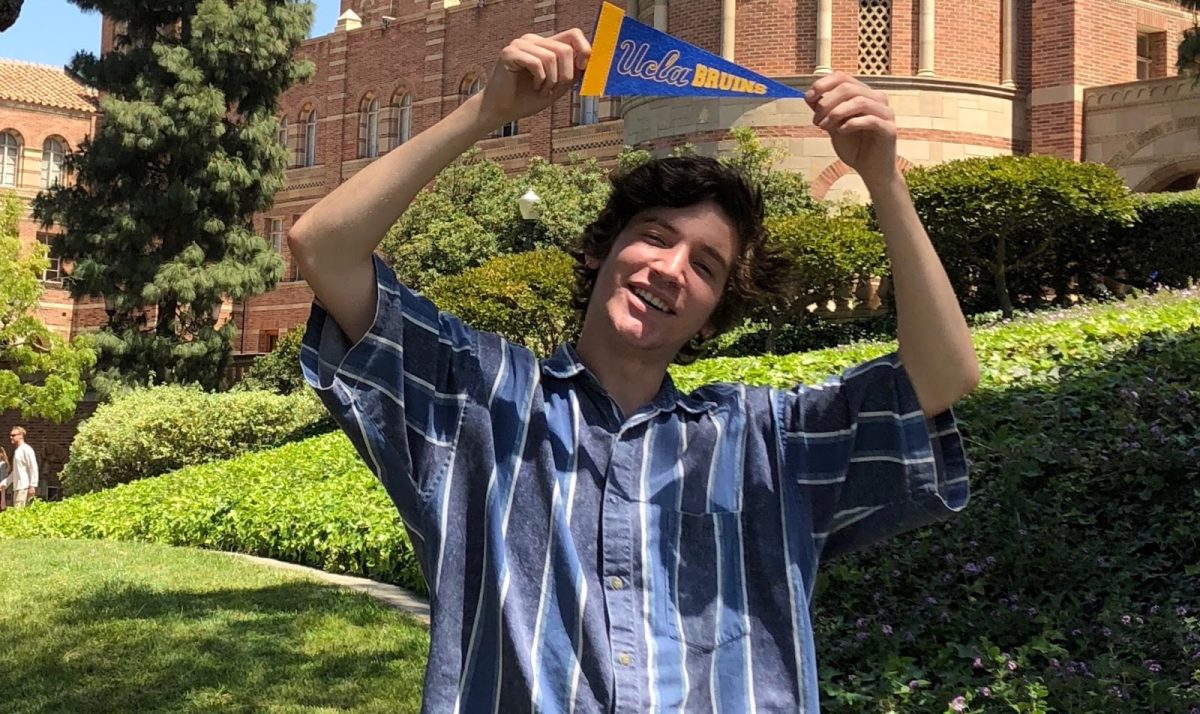From the beginning of San Luis Obispo High School students’ education, they are told that elementary school prepares them for middle school, middle school prepares them for high school, and high school prepares them for college. This preparation is described as one of the main purposes of a high school, but is SLOHS fulfilling this goal? Expressions asked the former editors-in-chief of Expressions if their experience at SLOHS got them ready for the skills they need in college.
Expressions: Overall do you feel that high school set you up to have success in college?
UCLA Student Luca MacDougall: In some ways yes, I think the classes that I chose to take helped me form a solid base of knowledge. I can’t say that any specific classes necessarily prepared me for college as a whole, but I constantly find myself drawing upon things I learned in US History, Economics, English classes, and stuff like that.
Whitman College Student Connie Moore: I feel like SLOHS overall prepared me for college, but only because I actively sought out harder classes to take. AP classes were more college-level and so they prepared me better, but I believe that the level of education in non-AP and honors classes at SLOHS did not in any way prepare me. The few non-honors math courses I took did not put me in a good position for college-level math.
Expressions: What aspects of your high school education have helped you so far?
MacDougall: Just for my major, which is political science, I think AP Government and AP Macroeconomics helped a lot. Just in general, though, AP Literature and AP Language & Composition helped me because I’m taking a lot of writing intensive classes this quarter.
Moore: So far (English teacher Jane) Hawley’s Creative Writing class and (Economics teacher Greg) Ross’s Economic class have been the most helpful in college. Ross’s Econ class prepared me for college Econ, over-prepared me even, and I still use his slides to study rather than my professors. The amount of writing and quality of Hawley’s AP English classes also gave me skills to help me excel in my literature courses today.
Expressions: What do you wish SLOHS would’ve taught you?
MacDougall: The one thing I could think of is more inclusive history classes. When I took world history and US history it was very eurocentric, and if we ventured into non-white, non-European, non-American topics it was very biased. I definitely think SLOHS’s history classes should be taught from a less Americanized point of view.
Moore: I wish SLOHS would have taught me how to cite sources accurately, and more than just MLA format. Incorrectly citing sources in college often has steep punishments that range from getting many points marked off to be considered as plagiarism.
Expressions: Can current SLOHS students take any steps in school or outside of the classroom to be better prepared?
MacDougall: If you’re planning on going to college, make sure you have an understanding of budgeting and managing your money. It’s super easy to waste money on random stuff that you don’t need. Also, if there are short classes you can take the summer before the academic year start, I highly recommend you take those. They’re pretty easy and they’re a great way to ease into college life.
Moore: In the classroom just try your hardest to improve, challenge yourself, be in harder class levels, and simply put more effort into each individual assignment as it will lessen the whiplash between expectations for high school vs college-level work. Outside the classroom explore your own unique passions because in college you can often find a club or leadership opportunity that you can fully develop your passion within. Take time outside of class to find things that interest you, college isn’t just about work, and you can become involved with so much, it is so much easier if you take that first step in high school.
Expressions: Is there a college shock that surprised you the most?
MacDougall: I didn’t realize how much I would miss the ease with which I could maneuver my life in SLO. I knew everything about my friends, the city, the school, and now I’m starting fresh. It was shocking how easy it was to meet people, but it’s also shocking how hard it is to find a new strong group of friends as I have back home. I wouldn’t have it any other way though.
Moore: I would say the largest shock is realizing how going to school seven hours a day in high school was absolutely unnecessary, ridiculous, and borderline unethical. I feel like forcing students to be in an environment that long when at least a quarter of each class is wasted with meaningless talk or busy work then being forced to take even more time out of their day to do homework is draining and so easy to avoid. Four classes a day in college is considered to be a lot and most are only fifty minutes, but you learn so much more. The format of the days just contributes so much to the extent which you can truly learn. Basically high school is a torturous waste of time and you learn next to nothing, but you can’t drop out because we’re forced into a manipulative cycle that the only way we can get into college where the meaningful learning happens is if we snow plow our way through four years of mind-numbing nothingness that will not help us. America should improve the quality of high schools, shorten days, fire bad teachers, decrease homework, and increase project-based learning.



